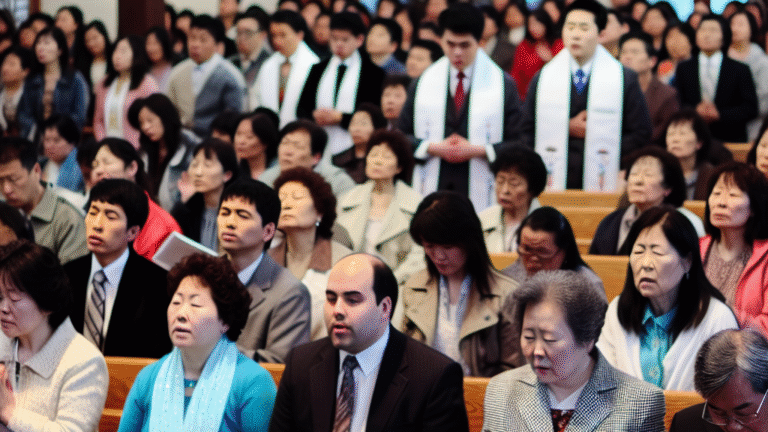This article delves into the unique dynamics of Korean Christian churches and their cross-cultural ministries. Through these communities, we witness an inspiring journey towards spiritual harmony, church unity, and love transcending cultural barriers.
The Role of Korean Christian Churches in Cultural Integration
Korean Christian churches have emerged as vibrant hubs for cultural integration amidst congregations comprising diverse ethnic groups. By emphasizing a Christ-centered life, these churches foster an environment where individuals learn to express their faith collectively. The services often incorporate bilingual elements, blending traditional Korean worship with contemporary practices from various cultures. Programs centered around prayer, discipleship, and community service encourage participation from all members, promoting spiritual harmony. Such initiatives nurture relationships across cultural lines, exemplifying Jesus’ love and commitment to unity. Through shared experiences and mutual support, they cultivate a faith community that thrives on love across cultures and collective mission.
International Fellowship as a Pillar of Spiritual Harmony
International fellowship serves as a foundational pillar for spiritual harmony within Korean Christian churches, fostering an environment where diverse cultures can unite in their faith. By creating inclusive gatherings, these churches encourage authentic dialogue and mutual understanding among congregants from various backgrounds. This interconnectedness is vital for enhancing relationships, deepening discipleship, and cultivating love across cultures.
Through shared worship experiences and collaborative service projects, attendees learn to appreciate each other’s traditions while emphasizing their common commitment to a Christ-centered life. Ultimately, this vibrant international fellowship nurtures an atmosphere of hope through Christ, promoting church unity and transforming communities with the power of love and faith.
Cross-Cultural Ministry: Bridging Gaps Through Faith
Cross-cultural ministry in Korean Christian churches serves as a dynamic bridge that enhances faith through understanding and love. These ministries actively address cultural gaps by creating environments where diverse backgrounds can worship and grow together. Through culturally relevant teachings, shared worship practices, and communal activities, they cultivate spiritual harmony. Participants engage in heartfelt dialogues, breaking down preconceived notions and fostering mutual respect. This unity not only strengthens individual faith but also emphasizes the beauty of community, reminding believers that love transcends cultural divides. Ultimately, cross-cultural ministry invites all to experience Christ-centered life, resulting in holistic growth and enriched discipleship.
Discipleship and Mission: Spreading Hope Through Christ
Korean Christian communities actively engage in discipleship and mission as integral elements of their faith practices. Through structured discipleship programs, believers are equipped with spiritual tools to deepen their relationship with Christ and to foster a Christ-centered life. These initiatives often extend beyond cultural boundaries, inviting individuals from varied backgrounds to share in the journey of faith.
By emphasizing the importance of cross-cultural ministry, Korean churches cultivate an environment where spiritual harmony thrives. Discipleship fuels a mission-oriented approach that spreads hope and love across diverse communities. Through service projects and collaborative worship, they demonstrate the transformative power of Christ, resulting in a vibrant tapestry of shared faith, unity, and purpose.
Church Unity: A Testament to Love Across Cultures
Korean Christian churches serve as vibrant examples of love across cultures, demonstrating church unity as a means to foster a supportive environment. By embracing a diverse congregation, these communities cultivate spiritual harmony, reflecting their commitment to a Christ-centered life. The unity within these churches transcends linguistic and cultural barriers, allowing members to grow in faith together.
Benefits include enhanced fellowship and mutual support, where love flourishes through shared experiences and worship. As congregants engage in cross-cultural ministry, they embody the essence of faith in community, inspiring one another in their discipleship journey and mission to bring hope through Christ.
Summary of Key Points
Korean Christian churches exemplify how faith can unite diverse communities, fostering a Christ-centered life and igniting hope through Christ. Their dedication to discipleship and mission offers a compelling model of spiritual harmony.
